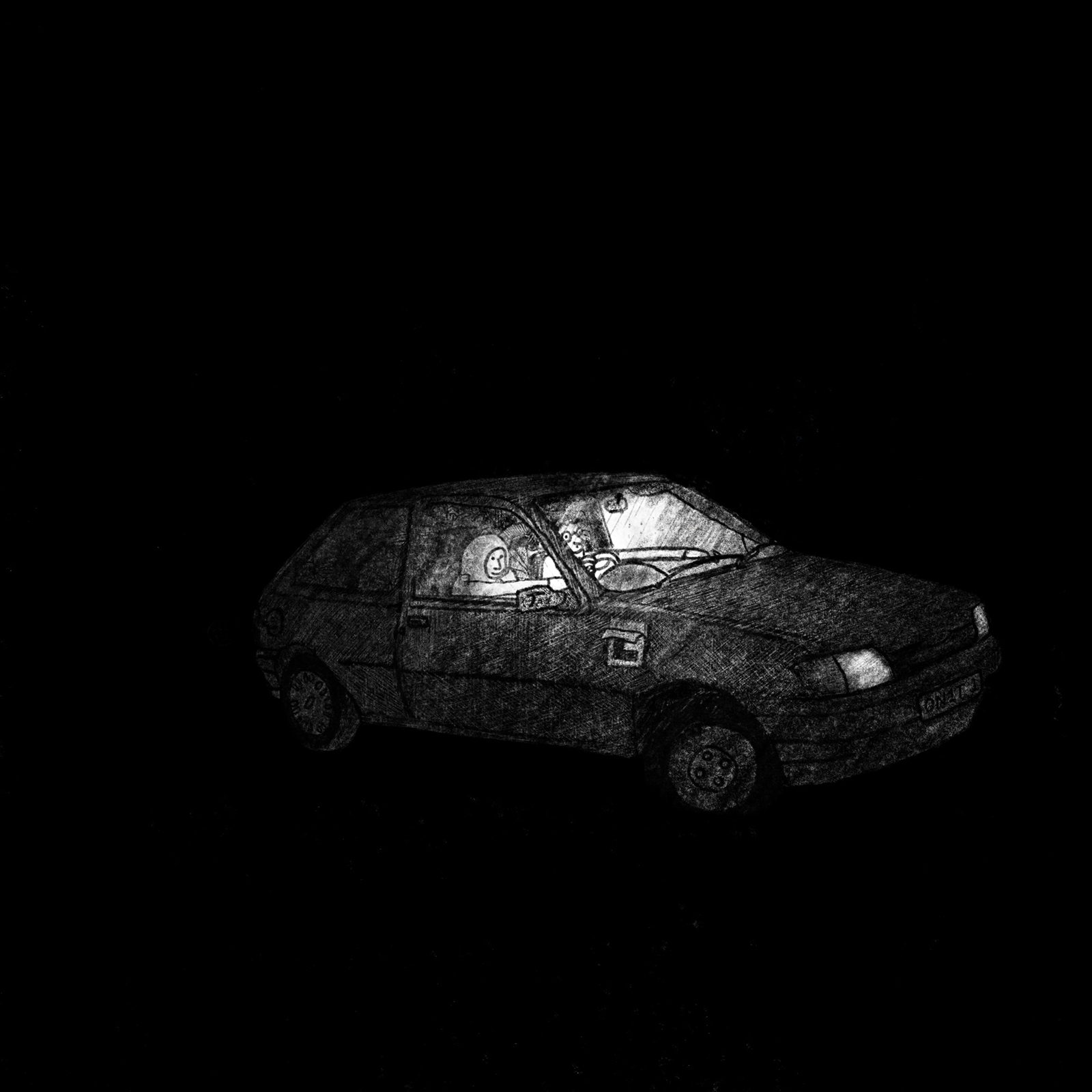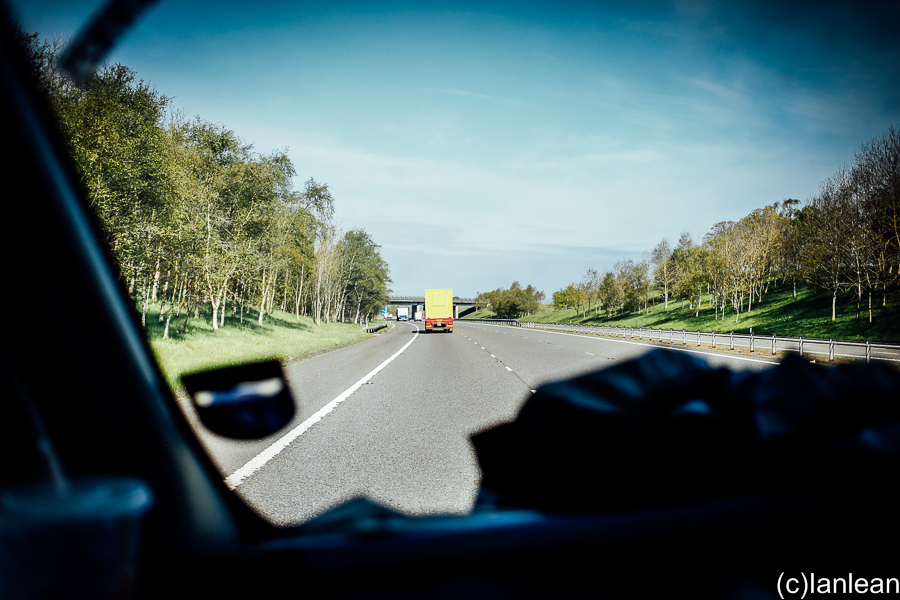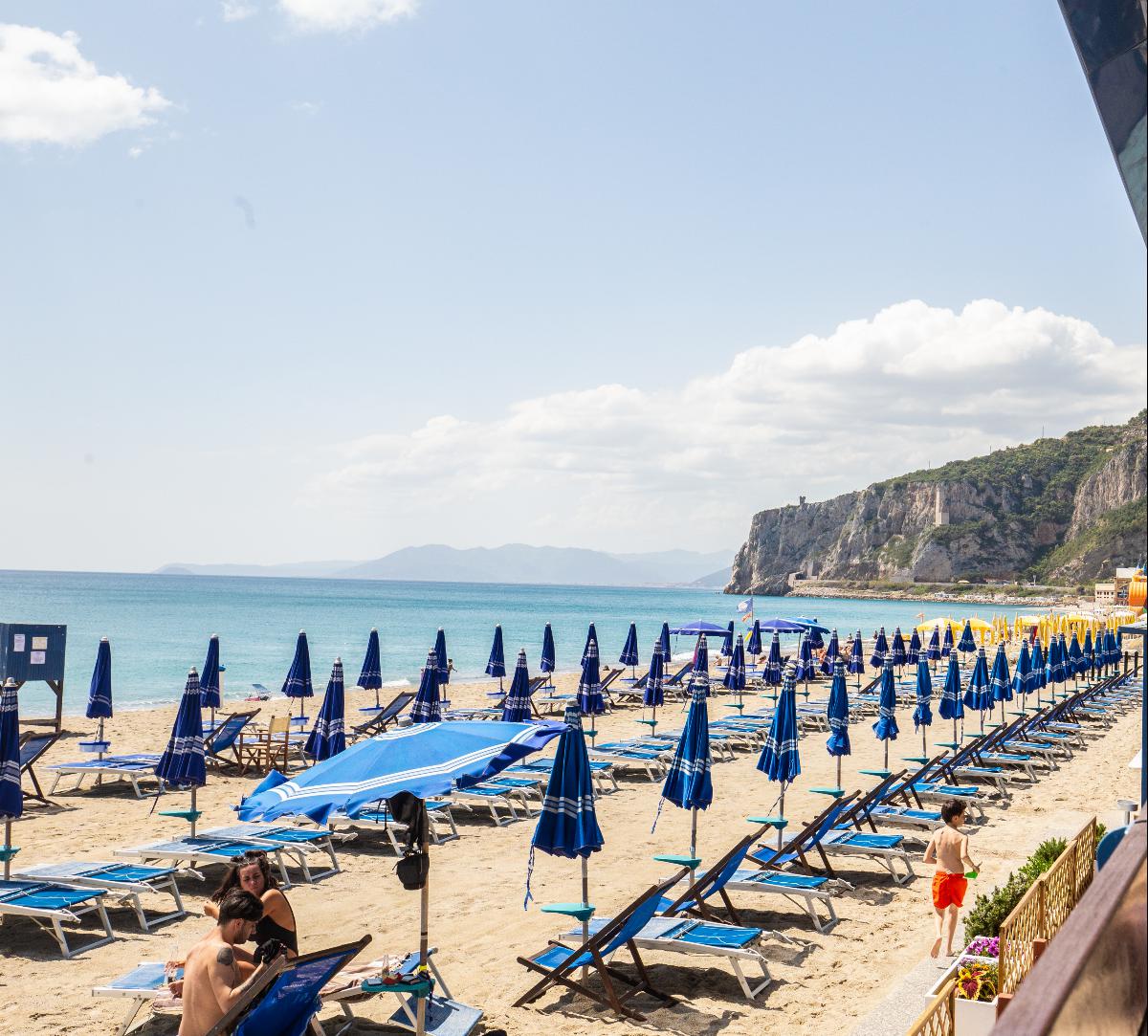Tall Tales is a collection of our favourite crazy bike-related stories from our favourite riders, racers and industry legends.
Everyone has that story that they wait until the end of the night to pull out when the anecdotal oneupmanship starts to get into the final round. Tall Tales is a collection of our favourite bike-related stories from the best in the business.
James McKnight brings us a Tall Tale of that true taste of freedom that a drivers’ license brings, and throwing caution to the hurricane.

I can confidently affirm the first ever road trip I drove was to Gouveia, Portugal, for a Maxxis Cup downhill race. I know this to be fact because I only passed my driving test the day before leaving. The story gets stupider.
I’m trying to think of the year. Two-thousand-and-four maybe. My maths is awful. Anyway, some point late-winter, early spring, my friend Pedro and I saw the race advertised in Portugal and decided we had to go.
We booked a Portsmouth-Santander ferry as soon as possible and got on with working to save some money for the trip. We also booked a place to stay in Portugal; so that was one hundred percent sorted, too.
From our point of view, the only current flaw in the plan was that neither of us had a driving license. I was closest to getting one but the only time I could book a test was the day before our ferry. I don’t remember this being of any concern at all. Ah, the beauty of youthful ignorance (or just stupidity — I’d probably make the same decision today).

My driving test went well: I broke the speed limit twice and bollixed a simple manoeuvre in which I careened the entire length of a car park trying to select ‘any space’ (as instructed) to reverse into before veering into the last available spot and coming to a sudden halt at a jaunty angle with the rear bumper grazing a brick wall. This provoked a raised eyebrow from the evaluator but not a lot more, fortunately for me, he was a keen fan of speedway racing and was more focused on judging my knowledge of the sport than my competence behind a wheel. I got full marks in both assessments. The driving test was a nice chat about the thrill of going fast sideways in circles, and later that night I borrowed my sister’s mid-nineties Ford Fiesta to go and do the same.
The next hurdle to leap in our Portuguese adventure was what vehicle we’d be going in. Again, I don’t recall ever thinking about this beforehand and have no idea how we’d managed to book the ferry with zero driving licenses or vehicles between us. Inevitably, the next morning two downhill bikes, camping kit, some ‘borrowed’ food and all our spares (only joking — we didn’t have any spares) were crammed into the Fiesta and we were off.
Anyone who has a driving license must surely remember the exciting feeling of liberty in the first hours and days being in possession of it. (That bit before you discover incessant traffic jams, expensive fuel refills, regular breakdowns and the guilt of constantly polluting.) At that moment, we were out there, two 18-year-olds on the road to a wild and free future. It was an all-windows-down blast.

The first port of call was the port of Portsmouth. (More of a writer’s brain fart than a tongue twister, my apologies.) Here we boarded the boat and soon met Paul Aston and James and Alex Stock, a furtive trio also heading to the race who would later become some of my best friends. Insert inspirational phrase about formative years here. We disembarked a day later and continental Europe lay before us.
Our navigation system involved stopping in service stations for a look at a map — heaven forbid paying €10 for the privilege of taking it with us. This inspired the first major error in motor vehicle-based navigation of our driving careers as we climbed high and far into a mountain range. Metres-deep snow lined the road — a feat of winter that blew the minds of these two boys from the mild climes of Wiltshire. We stopped to marvel and run around frantically in the white stuff before cruising across the border into Portugal; this would become something of an annual pilgrimage.
Gouveia was a lovely spot, but we were staying down the hill. Our accommodation was a commendably mouldy caravan that was wedged in the corner of an empty campsite. It suited us just fine. Plus, there was a vintage bottle of wine left inside and the reservation came with a promise of the holy grail of low-cost travel: free breakfast.

I’ve no idea how the race went. Presumably mediocre with some sort of major mechanical failure, as that’s what sort of racers we were. Regardless, we had a fantastic time living it up in the sunshine, hanging out in the campsite and riding terrain like we’d never before seen. Unfortunately, the breakfast was ‘continental’ — a dry piece of bread and a single slice of cheese — but that stitch up was just another unavoidable life lesson.
It was on the return leg that things got interesting. We’d discovered beer for 50 centimes a bottle during our stay in Gouveia and, even at this excessively low price, had somehow managed to spend all our miserly funds remaining hydrated. Between us and the ferry was nearly 600km (plus wrong turns) of hilly driving with a near-empty fuel tank, and we were out of food, too. Petrol was cheaper back then, and we were more optimistic, but even by our judgement the numbers were questionable.
This is how we discovered the 56mph speed that we’d use for many years to come, the speed/distance formula that is allegedly best for fuel saving. We freewheeled down any hills or slight slopes and did our best to never come to a complete standstill — a total no-no in the world of efficiency driving.

Still, at some point it became blindingly obvious that we were never going to make it to Santander. Thankfully, Pedro remembered £20 he had in his bank account (we were cash-in-the-glove-box kind of travellers), a moment of total jubilation as if we had won the lottery.
Alas, in the middle of nowhere there are no banks. We stopped at a rural garage to check their map — an annoying break in our forward motion that was only compounded by the mocking looks of the fuel pumps — and decided to head into a big city somewhere on the road ahead. It was late and no banks were open, so we camped downtown in the front seats of the Fiesta.
Bank opening time (I don’t know why we needed to go in to get the money) left us slim chances of making it to the ferry before it sailed, but after an excruciating wait for the money withdrawal, Pedro got the cash, we found some fuel, and we were off.

Making it to the ferry just in the nick of time, we were ravenous after two days without food. We’d spent our 20 big ones on the fuel so now we cruised the boat’s restaurants dreamily gazing at their wares. We must’ve looked such a sorry state that an elderly couple took pity on us and gifted us their food tokens; sometimes I look back on other people’s generosity with great embarrassment. We ate and slept well and the next day disembarked to return home changed men.
Today, my brain has been rattled to disfunction by excessive road tripping; my journey is now measured in decades rather than kilometres. But if there’s one thing I’ve learnt from an adulthood of destitution and good times, something that first foray in a Fiesta taught me, it’s that adventure isn’t about where, it’s about how.




